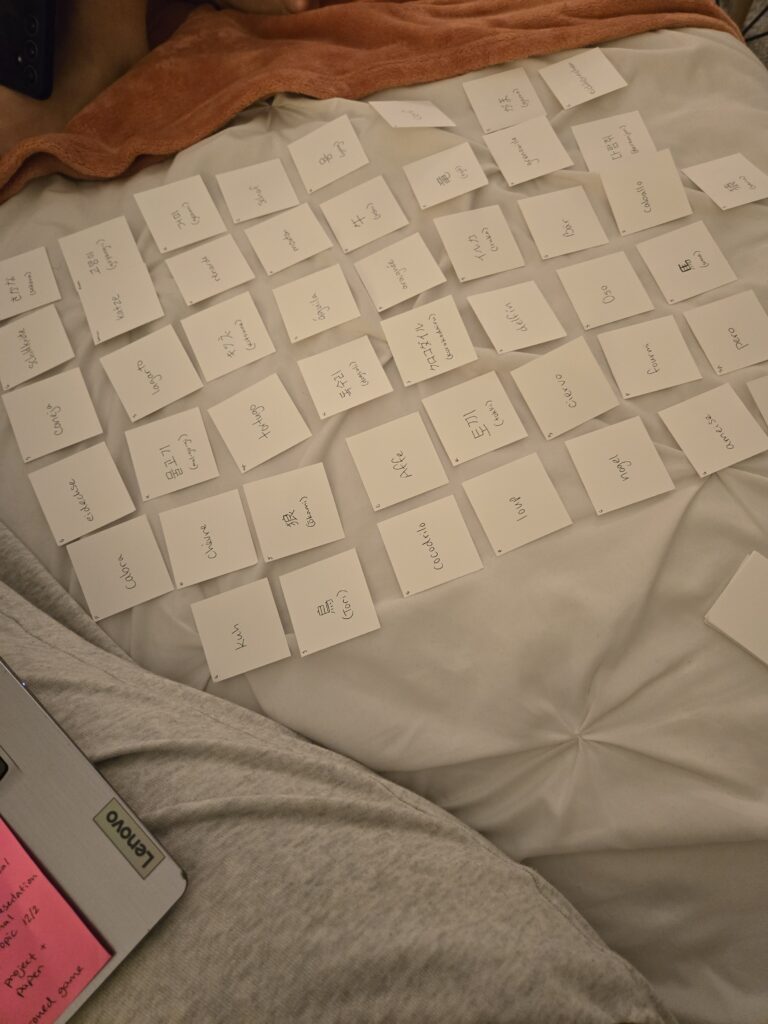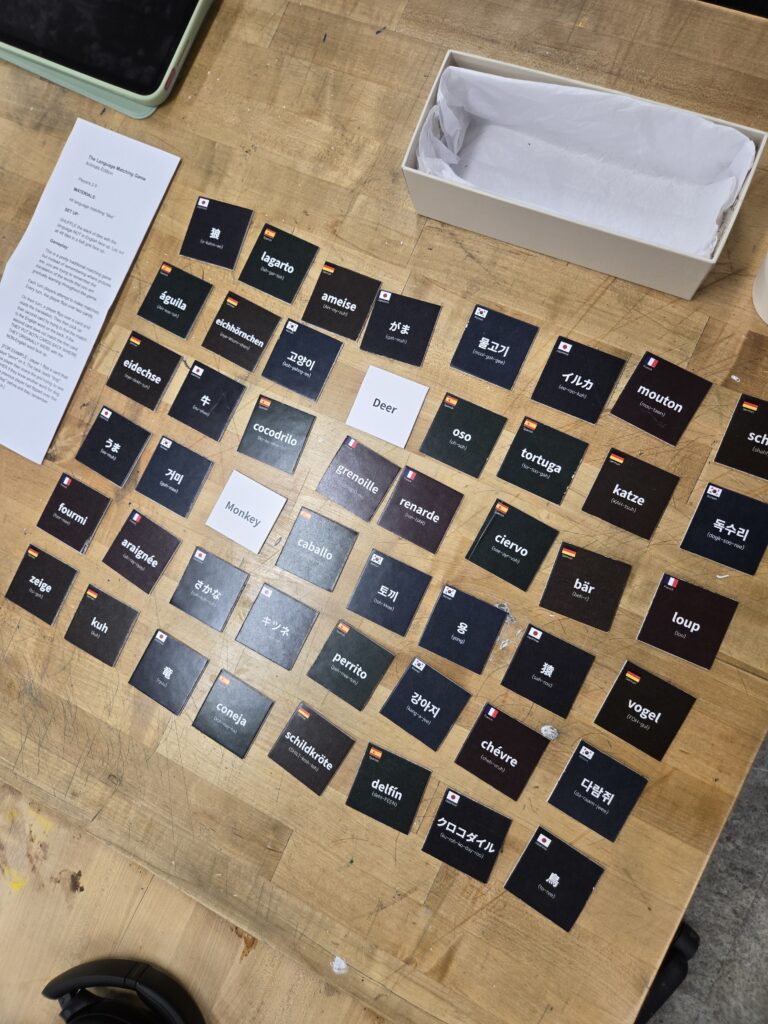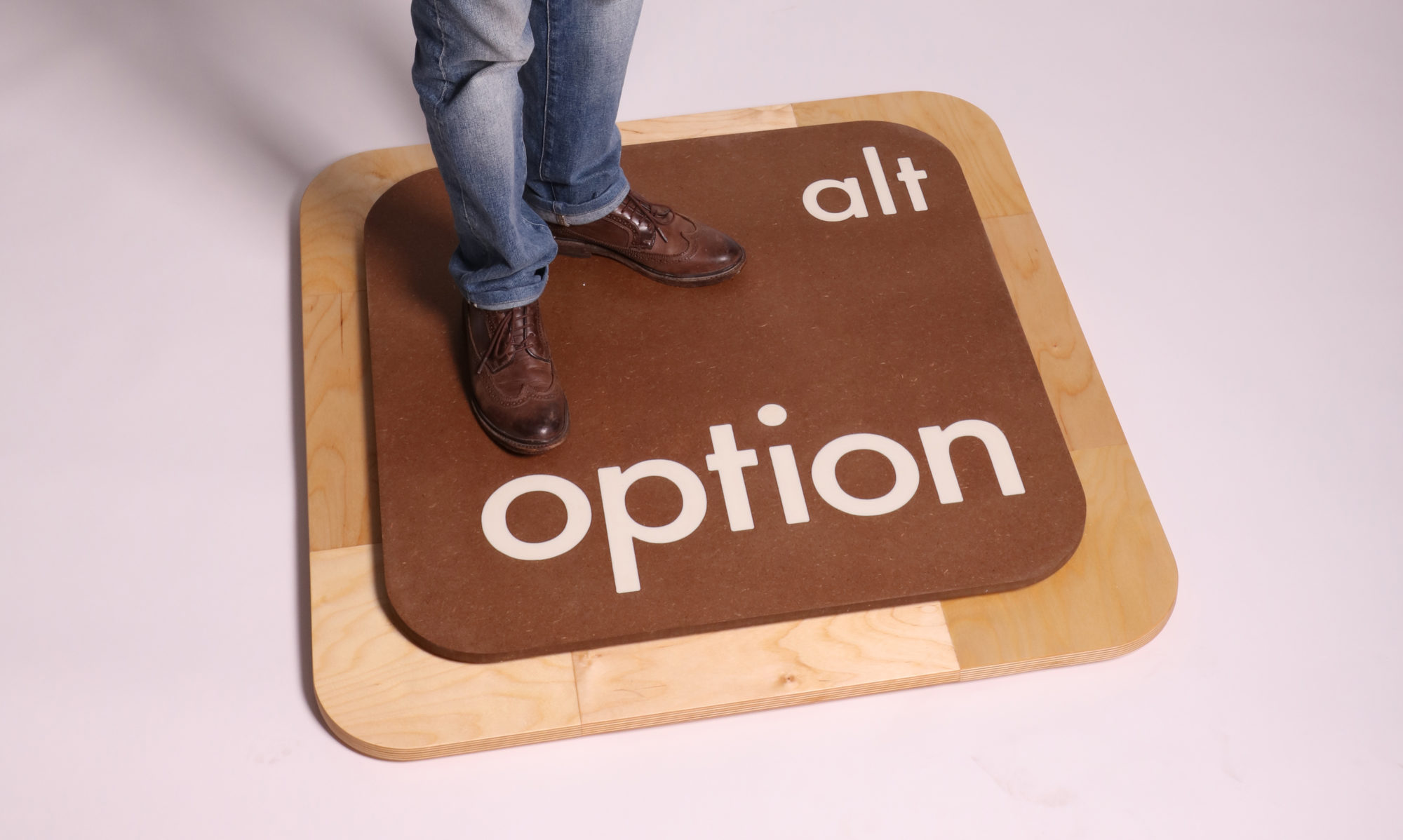Players 2-5
SET UP: Pick the stack that you want to play with and shuffle them with the language NOT in English face up. Lay out all 50 cards in a grid face up
Gameplay:
This is a pretty traditional matching game but obviously instead of remembering where pictures are, you are trying to remember the translation of the words that you are gradually learning throughout the game.
Each turn players attempt to make matches. Every turn, the player flips over two cards.
On their turn, a player flips over a card and reads the translation. They then pick up their second card by trying to find the match to the English word on the back. If the second card does not match the first card THEY PUT BOTH CARDS BACK WHERE THEY ORGINALLY WERE with the NON-English word face up.
FOR EXAMPLE – player 1 flips a card that says “perro” on it. The back reads “dog”. The player then scans the grid trying to see EITHER if they know another word for dog or if a previous player had flipped over the word “dog” before and they remember where it is.
Players take turn attempting to make matches until the grid has been completely matched.
HOW TO WIN:
Players with the most matches wins.
Congrats! You either already know another language or are good at memorizing places on a game board!
possible ALTERNATIVE PLAY:
1. If a matching game seems too boring, here’s another idea to spice it up a little bit.
Instead of taking a turn by trying to find a match by flipping over two cards, there will be an extra “hard” section of words above the matching grid that IF YOU KNOW OR CAN GUESS THE WORD counts as an additional match in your hand. However, guessing wrong does not remove the card from the game but you must reveal your guess and put it back above the grid if you guess incorrectly. The potential then is that other players have the opportunity to steal these bonus cards, narrowing down the meaning.
2. If there is a tie OR just if you want to keep the matches with the NON English words face up and shuffle the card and whoever remembers the most meanings gets an extra point or the number of points for that number of cards guessed right (by the players discretion)
Changes to be made (for the final):
delete the previous alternative endings – they’re not very natural
ADD possible ALTERNATIVE PLAY/ENDING:
At the end of the traditional matching game, shuffle all cards back together and designate one player to flip a card over in front of all players with non-English side face up and whoever correctly remembers (or guesses) the most English translations
create pictures of English words and put translations on all non-english words for people to pronounce
clarify that you take another turn (limit 2 extra turns) after getting a correct match – what to do when there is a tie
comments were made about different versions being fun potentially
NO GOOGLE TRANSLATE
little flags in the corner for design purposes and countries of origin for the words
Thoughts on Playtesting:
I play tested this in class and with my sister and it went similarly both times – i think it flows nicely but could be a lot of fun with different versions – i tried several different alternative endings with my sister which was informative on how i want to “finalize” it – both times people wanted pronunciations for all words which I definitely will do.

Final Presenation Version:

ALTERNATIVE PLAY/ENDING:
At the end of the traditional matching game, shuffle all tiles back together and designate one player to flip the tiles over in front of all players with non-English side face up. Once the stack runs out, see who correctly remembered (or guessed) the most English translations!
Use this alternative ending to resolve (1) ties (2) language practice or (3) just for fun!
